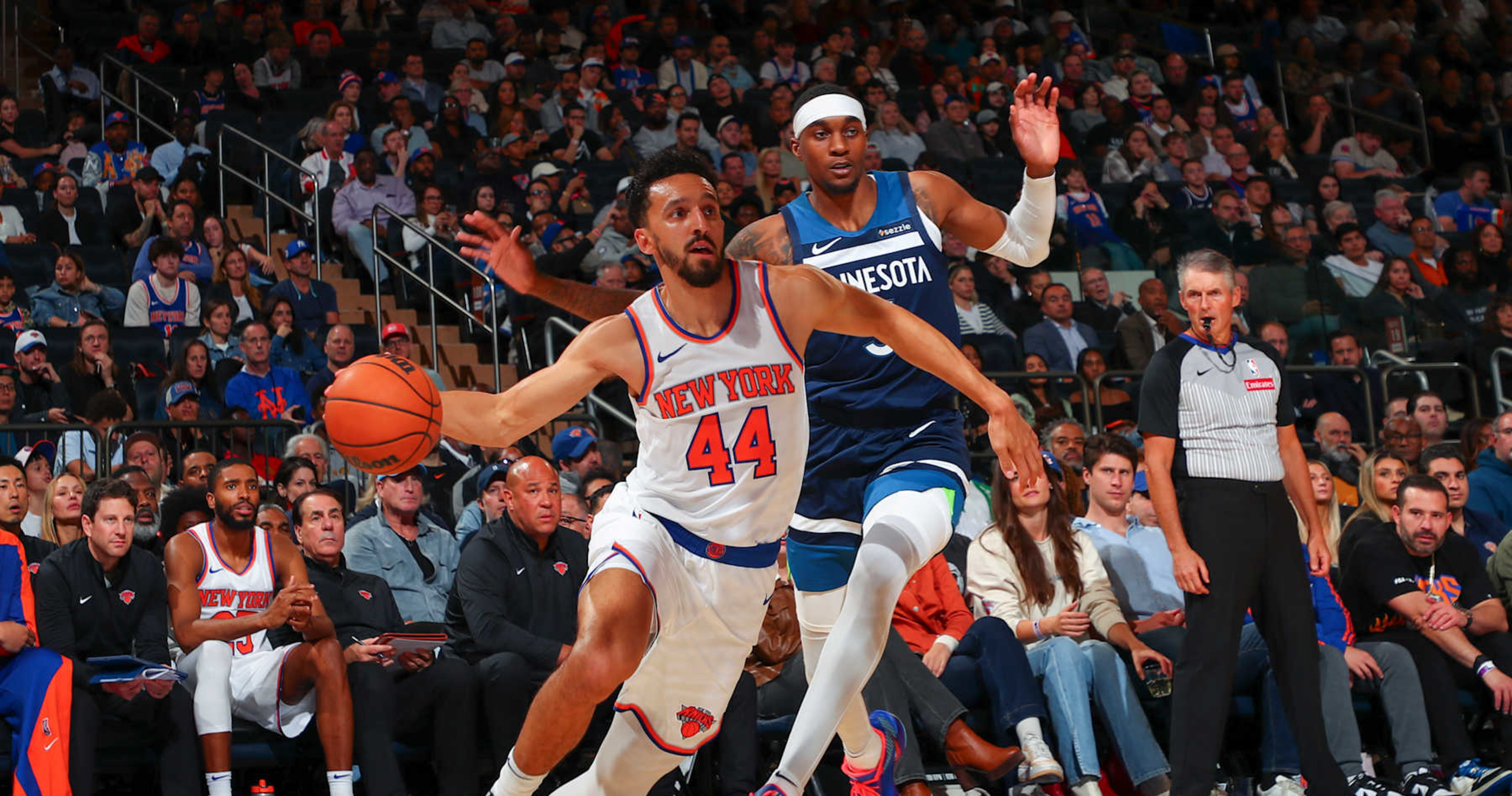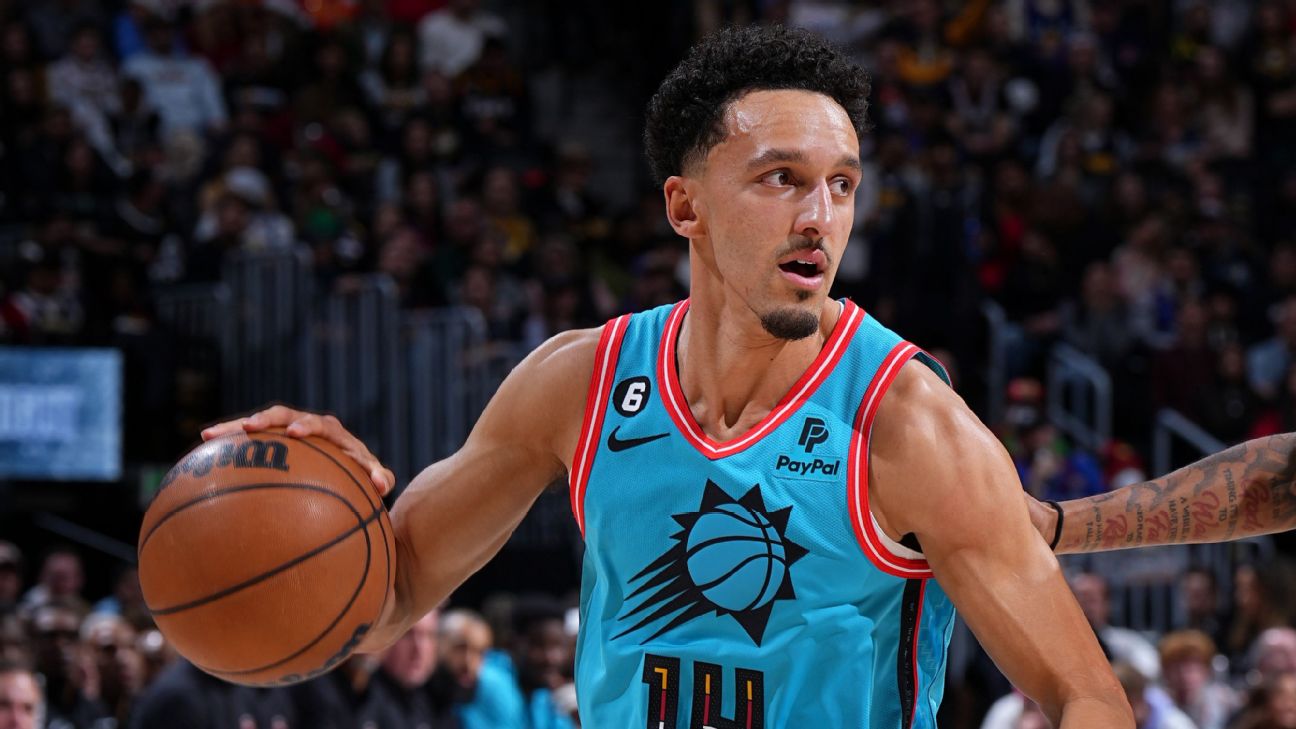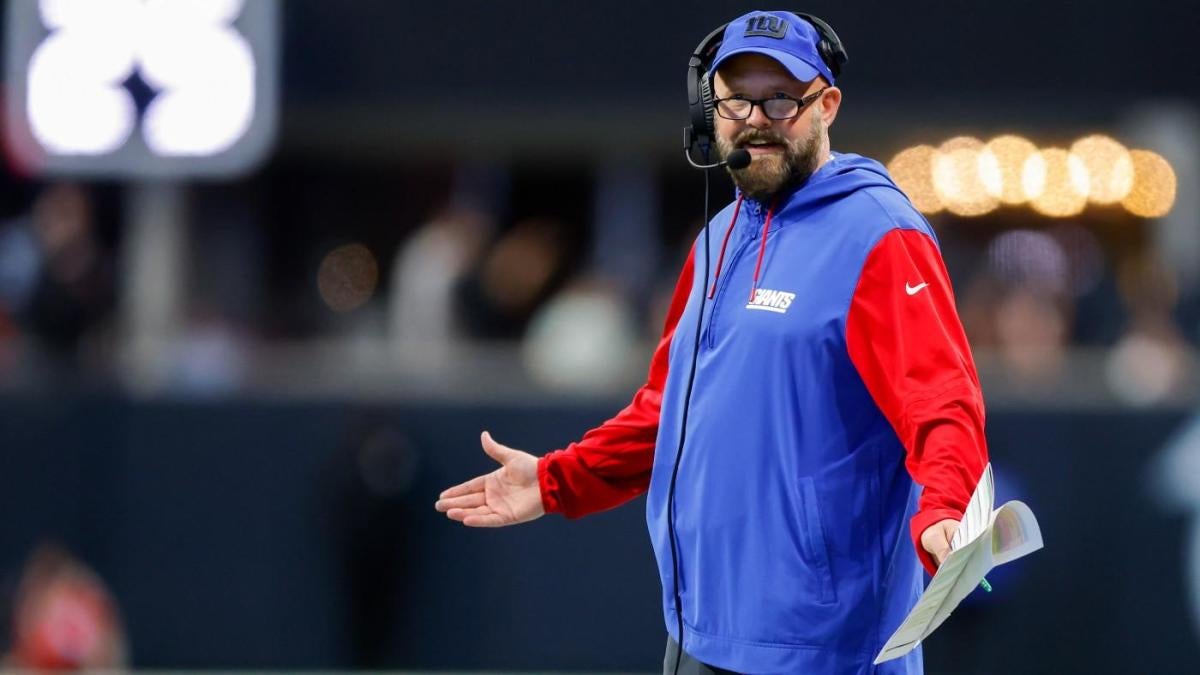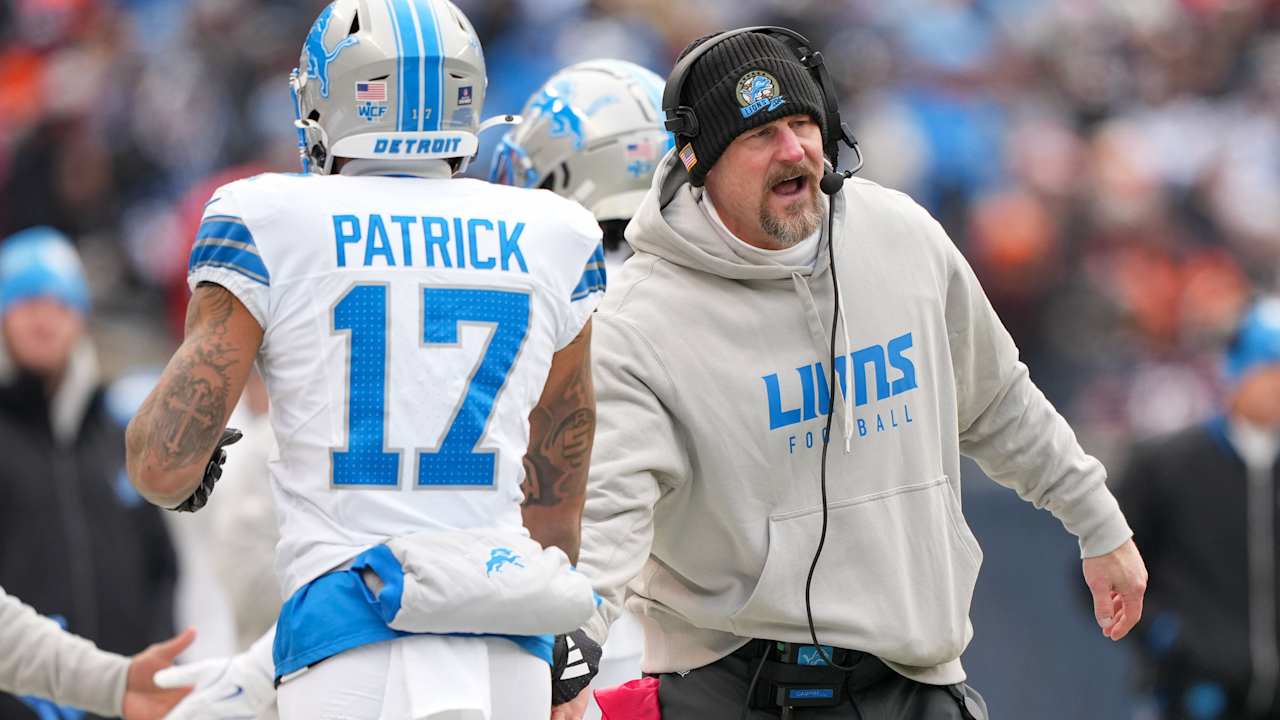Basketball
Dream Team dreaming: How great can this U.S. men’s basketball team still be?

Follow our Olympics coverage from the Paris Games. And follow live coverage of day two of the 2024 Paris Olympics, including dedicated gymnastics coverage
PARIS — Five words changed basketball forever, not just in the United States but around the world.
“If they’re in, I’m in.”
That was Michael Jordan’s response when asked to join Team USA for the 1992 Olympics.
Rod Thorn and Russ Granik, the two deputies to NBA commissioner David Stern, had compiled quite a list of stars interested in playing. Household names like Charles Barkley, Karl Malone, Larry Bird and Magic Johnson. Thorn called Jordan to ask — a smart strategy since Thorn had been the Chicago Bulls general manager who selected Jordan in the 1984 NBA Draft — and Jordan’s response became an early memorable moment for one of the most storied runs in American Olympic history.
That team for the Barcelona Games would have routed its competition even without Jordan. With him, a global cultural revolution of the sport was born, with a coolness, marketing reach and display of sheer force that inspired generations of youth in Europe and Africa and Asia and Australia and South America to pick up a round orange ball and dream that they could be like Mike.
It was the Dream Team, and Jordan was its face. It easily earned a spot in the top echelon of celebrated Olympic history for Americans, reached only by a select few individual athletes like Simone Biles, Michael Phelps, Jesse Owens and Carl Lewis and squads like the “Miracle on Ice” hockey team of 1980.
“There’s no question the Dream Team had that kind of impact,” Granik said. “You hear from countless current players that they never thought of playing anything besides soccer until they saw the Dream Team.”
As a program, American men’s basketball has enjoyed sustained success like its counterparts in women’s basketball, which is attempting to become the first in any team sport to win eight straight Olympic golds, and women’s soccer, which spurred a revolution for its sport in the late 1990s and early 2000s.
And the 1992 squad set what quickly became the team standard for U.S. men’s basketball on the global stage, a barometer that is no longer reachable and hasn’t been for some time.
Still, as the U.S. men’s team starts its Olympic run Sunday, it begins with a roster that has drawn countless comparisons to the Dream Team. The link arrived even before formal selections were made, with a spot for the Paris Games an alluring draw for top NBA talent because of the commitments of megastars like LeBron James, Stephen Curry and Kevin Durant.
Yet with two close calls in warmup games last week against South Sudan and Germany, this team has already failed to live up to the impossibly lofty standards of 1992.
“We’re not invincible,” Curry said, uttering a statement no member of the Dream Team could have made with a straight face.
On paper, the U.S. men’s team is arguably the best team assembled since 1992. But it’s missing the magic of novelty, a lesson Americans learned quickly in 1996 when the men’s team blew past its competition at the Atlanta Games without quite the same fanfare.
LeBron James and company know the stakes. Their run at a gold medal and a spot in USA Basketball lore begins Sunday against Serbia. (Gregory Shamus / Getty Images)
Once Jordan and Barkley and Bird and Magic partnered to dominate the world, future rosters of stars doing the same thing became … expected.
“I think (that’s true) for any USA team because we’re considered the best in the world, the best players in the world combined on one team,” said Anthony Davis, who played in the 2012 London Games before he played in the NBA.
You say MJ is the greatest ever to play? James was his true NBA heir and has arguably equaled or even surpassed him in the sport. James, not Jordan, is the NBA’s all-time leading scorer, and it was James standing at the front of a barge carrying hundreds of U.S. Olympians on Friday night on the River Seine, as the first men’s basketball player to carry the American flag for an opening ceremony.
Curry is arguably the greatest shooter of all time. His relentless launching of 3s changed how the sport is played. Durant is the most prolific scorer in U.S. men’s history and could, if the Americans win gold in Paris, become the most decorated Olympic men’s basketball player.
“I don’t know if Magic, Michael and Larry, if they coined that (nickname) themselves and walked around calling themselves the Dream Team or if that was the nickname that fans and media gave them, (but) I feel like we’re going to have the same vibe,” Curry said earlier this summer.
That was true until reality set in. The initial U.S. roster included Joel Embiid, a Cameroon-born 7-footer who is a year removed from being the NBA’s MVP. Current champions Jrue Holiday and Jayson Tatum were in. So was Kawhi Leonard, a two-time champion and NBA Finals MVP.
Leonard, though, didn’t make it out of training camp; USA executives sent him home over concerns with a chronically swollen knee. Embiid showed up to camp out of shape, and the offense looked clunky in early exhibitions when he was on the court. Durant couldn’t play or even practice because of a calf injury.
Then, in consecutive tune-up games in London the week before the cauldron was lit, the South Sudanese led the Americans by as many as 16 points and Germany carried a lead against the team in the fourth quarter.
The U.S. recovered to win both games, thanks in part to some heroics from James that NBA fans have seen countless times. But the showings were jarring nonetheless for anyone drawn to the Dream Team comparison.
Close games, after all, were not a possibility in 1992.
“It’s a good reminder that we’re talented, we’re experienced, we’re a new group together, but there are a lot of good teams that are fighting for that podium,” Curry said. “So you can’t just show up and expect to win.”
The competitiveness that Curry described is actually the Dream Team’s fault, too.
In 1992, the American team had 11 NBA stars and Christian Laettner, who was entering his rookie pro season that fall. There were nine other NBA players on the other Olympic teams in Barcelona.

GO DEEPER
The Lille Olympics: How badminton bumped NBA, WNBA stars from Paris’ first week
As the Olympic tournament opens in Lille, France, near the Belgian border, there are an Olympic-record 51 players in the men’s tournament who were in the NBA last season and 81 with at least some NBA experience. A few are superstars.
One of them, Nikola Jokić, is a league MVP three times over, a champion who will lead Serbia against the United States. Serbia is the reigning World Cup runner-up with multiple players who have NBA size, talent and experience.
Giannis Antetokounmpo of Greece has two NBA MVPs and a league title. Shai Gilgeous-Alexander, an MVP candidate with the Oklahoma City Thunder, leads a Canadian team stocked with pros. Victor Wembanyama, the 7-foot-4 reigning NBA Rookie of the Year who is just 20 years old, is the newest addition to a French national team with several NBA pros.
The collective freakout that ensued last week after the Americans were nearly toppled by South Sudan, a country younger than Wembanyama, disguised that the South Sudanese team contains several players with NBA experience and one player, 17-year-old Khaman Maluach, who’s headed to Duke in the fall.
In the past five years, counting two FIBA World Cups, one Olympics and the exhibition schedules preceding those events, the American men have lost nine times. The only game the Dream Team lost was a scrimmage — against a collection of the top American college players after a night of partying.
And that’s the standard every U.S. team since is held to even though it is no longer fair.
“It’s the strongest field ever,” U.S. coach Steve Kerr said. “The game gets better and better globally, more and more NBA players, but also teams are more and more comfortable playing against us, and so we know that every game’s going to be difficult and we have to prepare for that and be ready because these teams are coming after us.”
Kerr was an assistant for USA Basketball under Gregg Popovich, the coach at the 2019 World Cup and the 2021 Olympics. Popovich, the winningest coach in NBA history, has said coaching for his country was the most pressure he has faced in his storied career.
The expectations do not match the reality. Winning is taken for granted, and losing is an abject failure.
With those being the buoys any U.S. team must navigate — win as expected or you stink — it would seem little is possible for the current team from a legacy-building perspective.
The most likely scenario is the U.S. battles through six games in France and emerges with a fifth consecutive gold medal. Durant wins an Olympic-record fourth gold in men’s basketball. James gets his third medal; Curry and Embiid get their first in their first Olympics. Maybe none of them play again for the U.S. team. At this tournament, they deliver U.S. fans fond, lasting memories through clutch performances in tight games.
“These are stories (yet) to be told and unfold,” James said when asked what cultural impact this team could have to make good on the comparisons to the Dream Team.
Team USA could also lose.
Of course it could. If the Americans drop their game to Serbia on Sunday, like the 2021 team lost to France in Game 1 in Tokyo, alarm bells will sound and criticism will pour down on this team from across the Atlantic.
A loss in the knockout stages, when there are no more second chances, and a Dream Team redux becomes a historic nightmare.
There is also the possibility of something unimaginable to those who follow international basketball closely, the idea that casual fans often take for granted: that this team, with the names and the resumes that rival the Dream Team, finds the extra level or two it needs to blow away the competition.
In that scenario, the U.S. men’s team would be remembered forever, even if not quite held in the same reverence as the Dream Team.
“We don’t take these things for granted,” Davis said. “You don’t come in like, ‘Oh, we’re the “Monstars” and we’re just going to crush everybody.’ Like, those days are long over.”
They are, but it hasn’t stopped every U.S. team from being judged by what the Dream Team accomplished eight Olympiads ago.

GO DEEPER
Victor Wembanyama’s Olympic debut for France: What players and coaches thought
(Top photo of LeBron James and Stephen Curry: Tim Clayton / Corbis via Getty Images)










